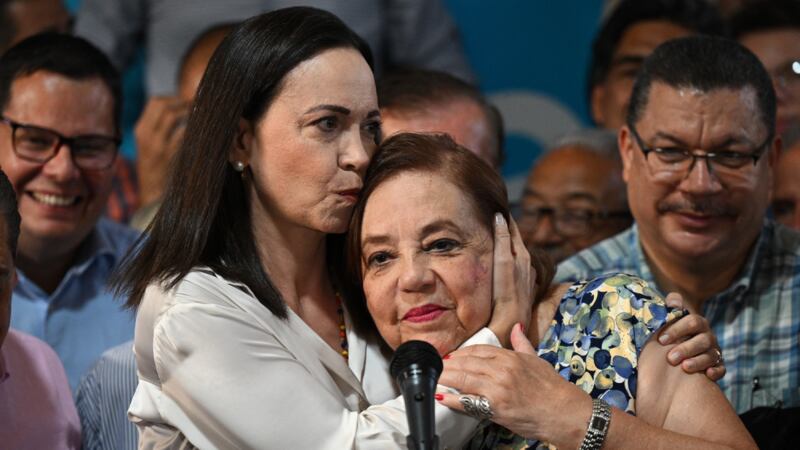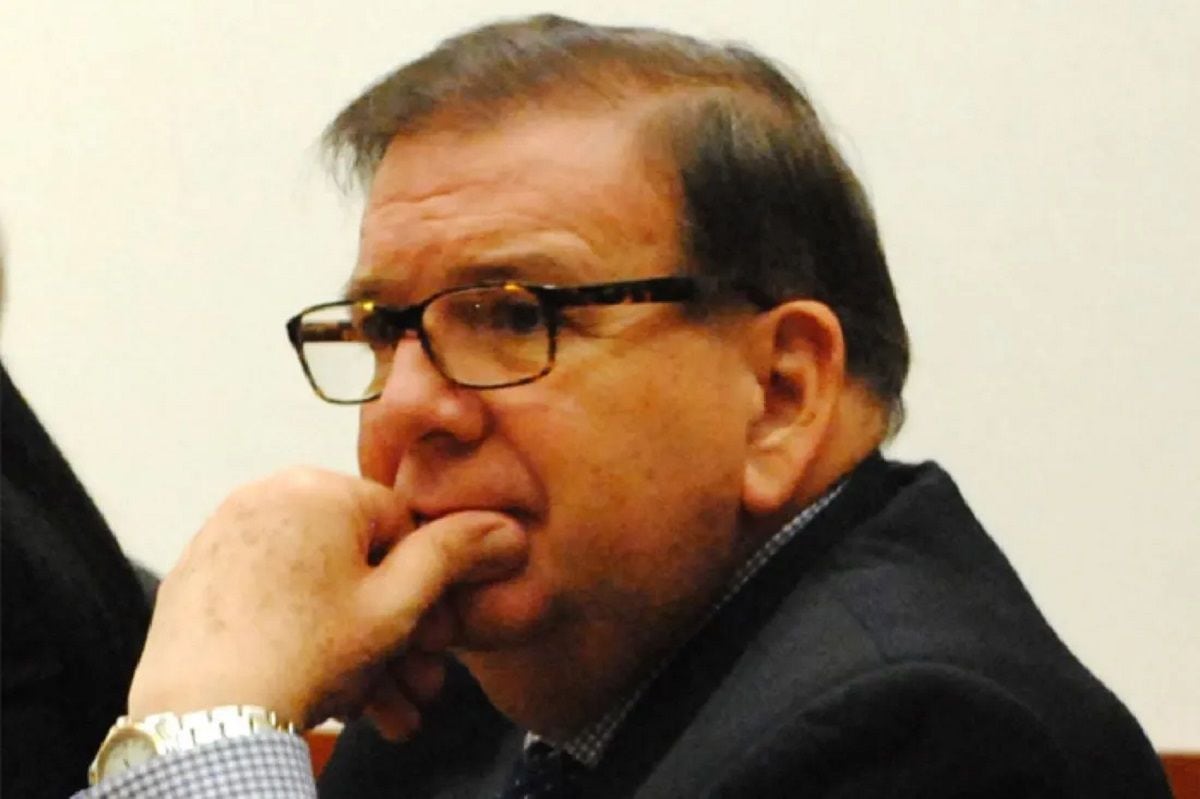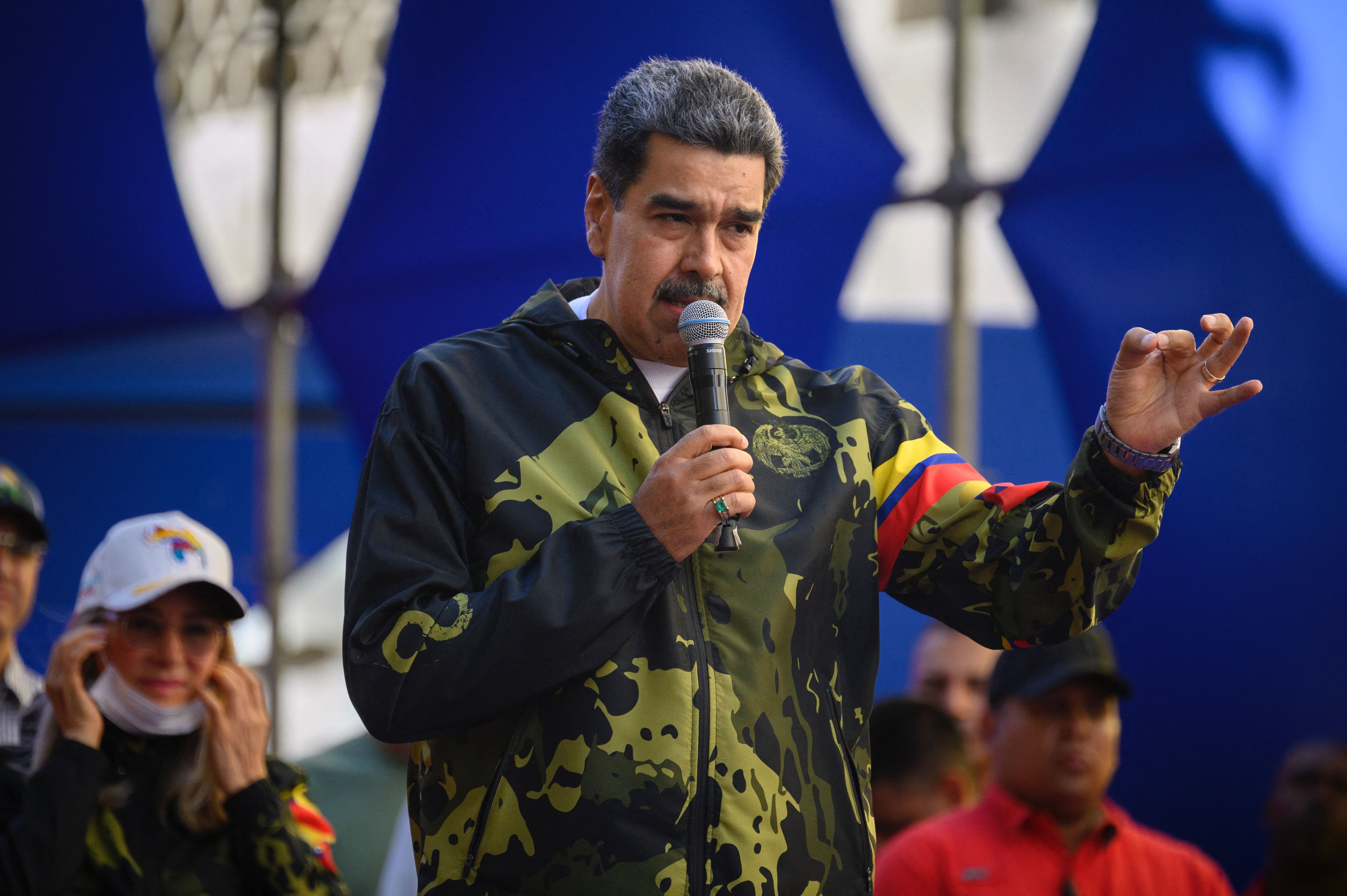The path of the opposition Venezuela Defeating Nicolás Maduro in the July 28 presidential elections is increasingly complex. The forces seeking to leave the regime managed to register two candidates, among a bunch of candidates, but none of them was the candidate chosen by María Corina Machado to replace her due to her disqualification.
TO LOOK: Do you have options against Maduro?: Manuel Rosales’ candidacy shakes the opposition
On the one hand, Manuel Rosales, governor of the state of Zulia and leader of the Un Nuevo Tiempo (UNT) party, registered at the last minute under the slogan that the opposition should not be left without participating. On the other hand, the Democratic Unitary Platform (PUD), the main opposition coalition, “provisionally” appointed former ambassador Edmundo González Urrutia.
The end of the census marks an uncertain electoral outlook. The PUD had initially opted for the candidacy of first Machado and then Corina Yoris, but ended up choosing a “cover candidate”, who could be replaced on the way to the elections.
Machado, in turn, reiterated Yoris as his candidate and does not seem very willing to endorse his votes for another opponent. The political leader won the PUD primaries last year in the elections and is the favorite in polls that give her a favorable voting intention of 70-30 against Maduro. Her support is crucial for the opposition unity candidate.
How are the prospects predicted? Venezuelan lawyer and political analyst, Luis Salamanca, emphasizes that to assess what is to come it is essential to understand that there is not just one opposition.
“There are several oppositions, including the most important in the country, which is centered on the PUD, which promoted the primaries. Machado was an alternative opposition to the PUD and opposed many of the parties that make it up, but today they have a tactical alliance. There are also people who have abandoned opposition parties and have had dubious understandings with the government and those who hope to win the elections alone,” he explains to El Comercio.
Therefore, the expert highlights that, at this moment, no candidacy from the majority opposition is yet firm. “The Venezuelan opposition candidate has not yet been definitively chosen. “We are focused on seeing what will happen in April”, he highlights.
Although 13 candidates managed to register, between now and April 1st the National Electoral Council (CNE) will be able to admit or reject the candidacies.
Furthermore, candidates may be replaced from April 1st, as long as they do not have any sanction or administrative impediment provided for by law, and the CNE admits the candidate that replaces them.

Salamanca considers that what will come now is an internal fight in the PUD, basically between the platform, Machado and Rosales.
“María Corina will continue to insist on Dr. Yoris or will propose another candidate, but it is expected that no name will be accepted in any proposal that comes from Machado. Additionally, the PUD can propose a candidacy that the government allows. And we must consider that if Rosales starts to rise in voting intentions, something that I believe could happen, the government will become desperate and may look for a way to take Rosales out of the game as well”, she explains.
He adds that in the candidate contestation phase, the regime can remove candidates as it sees fit, attributing to them a judicial decision, a legal problem, etc. “Then they can change everything,” says Salamanca.
For now, one of the main unknowns is what will happen with Edmundo González Urrutia’s current candidacy. To register the diplomat, the PUD used the card of the Democratic Unity Table (MUD), a former alliance absorbed by the current Unitary Platform and which has its own electoral ballot, so it will be essential to know who will finally replace González.

Salamanca recalls that MUD’s electoral card is the most successful of the opposition against Chavismo, which is why he considers that allowing his candidacy is a mistake on the part of Chavismo. “It is a very powerful letter, it is the letter of unity par excellence, it was not controlled by any party, but by all the parties that want political change.”
The expert also believes that the regime made a wrong calculation by letting Rosales run. “Rosales has managed his candidacy in a very intelligent way. He remained patient, offering Machado help. In my opinion, Rosales is a veteran candidate who can continue building a new type of unity, no longer because of the results of the primaries, but out of necessity,” he adds.
“There is a carousel of different expressions that tend to divide the opposition vote. However, if the PUD, María Corina and UNT finally manage to have a powerful candidacy, this candidate would become a great concentrator of votes. If Rosales continues to maintain and patiently build his candidacy and reality will help him because he has always said that we Venezuelans will end up choosing the ideal candidate, which is María Corina, but rather the real candidate, the one that reality allows,” he concludes. Salamanca .
Colombia and Brazil, ideological allies of the President of Venezuela, joined the wave of rejection from the USA, the EU and other countries regarding the development of the electoral process and highlighted that holding the July 28 elections is the opportunity to that democracy is “strengthened” in that country, as was agreed in Barbados.

The Government of the President of Brazil, Luiz Inácio Lula da Silva, against whom Maduro promised to call elections, was one of the first to express its “concern” and highlighted that electoral development “is not compatible” with the commitments of the Barbados agreement, signed last October.
The Government of Colombia, led by Gustavo Petro, also expressed its “concern” about the registration of “some presidential candidates, particularly in relation to the difficulties faced by majority sectors of the opposition such as the PUD and the Movimento Vente Venezuela, among others”. . For Colombia, these decisions could “affect the confidence of some sectors of the international community in the transparency and competitiveness of the electoral process that will culminate in the presidential elections”.
Almost immediately, the Government of Venezuela rejected the statements of its counterparts in Brazil and Colombia and said they were responding to instructions from the United States Department of State.
Source: Elcomercio
I am Jack Morton and I work in 24 News Recorder. I mostly cover world news and I have also authored 24 news recorder. I find this work highly interesting and it allows me to keep up with current events happening around the world.

:quality(75)/cloudfront-us-east-1.images.arcpublishing.com/elcomercio/RTJQSV62MRC7NDSBUOTJEOL33U.jpg)

:quality(75)/cloudfront-us-east-1.images.arcpublishing.com/elcomercio/QEH3MGCLP5HVZKOW3SAAEC6QDQ.jpeg)
:quality(75)/cloudfront-us-east-1.images.arcpublishing.com/elcomercio/HYV45V2F4FDZ7CFLYIN57ZVTSM.jpg)
:quality(75)/cloudfront-us-east-1.images.arcpublishing.com/elcomercio/KSZER2N32BEVBOOECW7JQZRKE4.jpg)
:quality(75)/cloudfront-us-east-1.images.arcpublishing.com/elcomercio/ZZEXIFC2YBCWPN4JIJMJLC3PDM.jpg)
